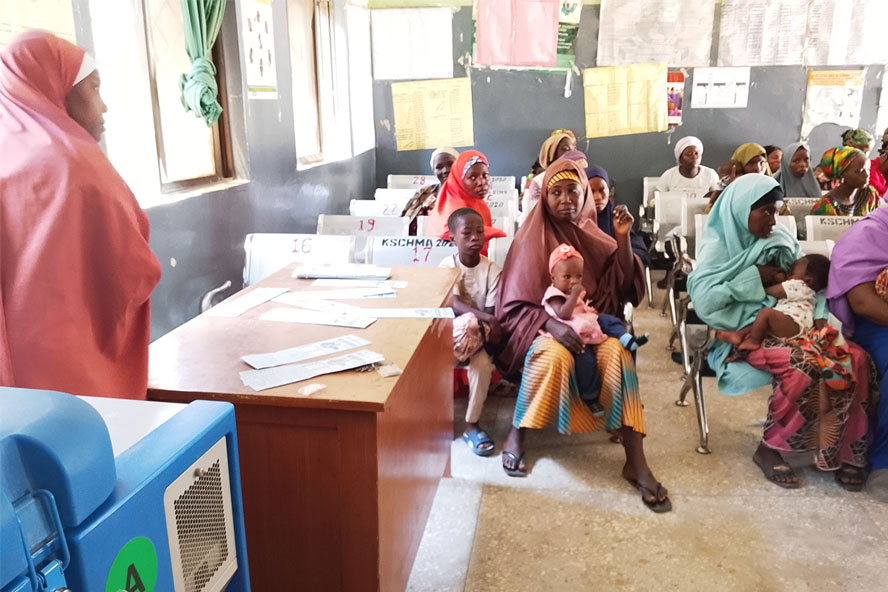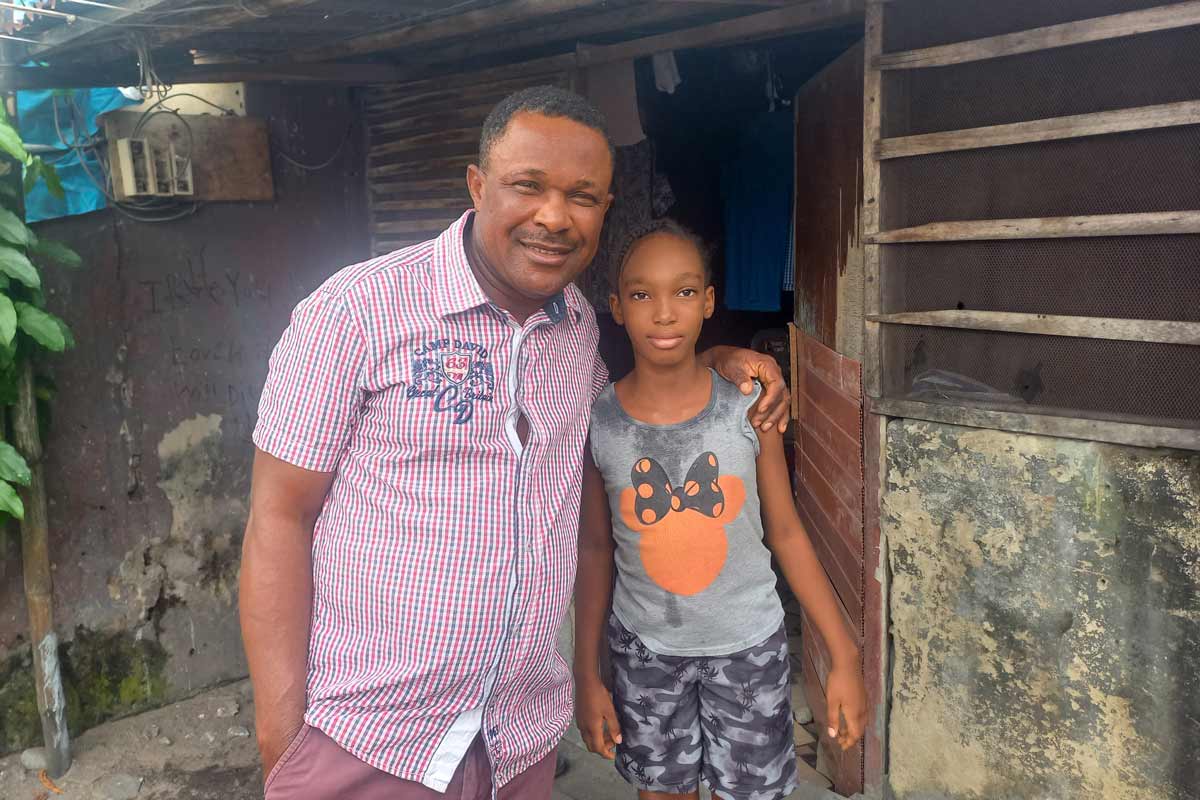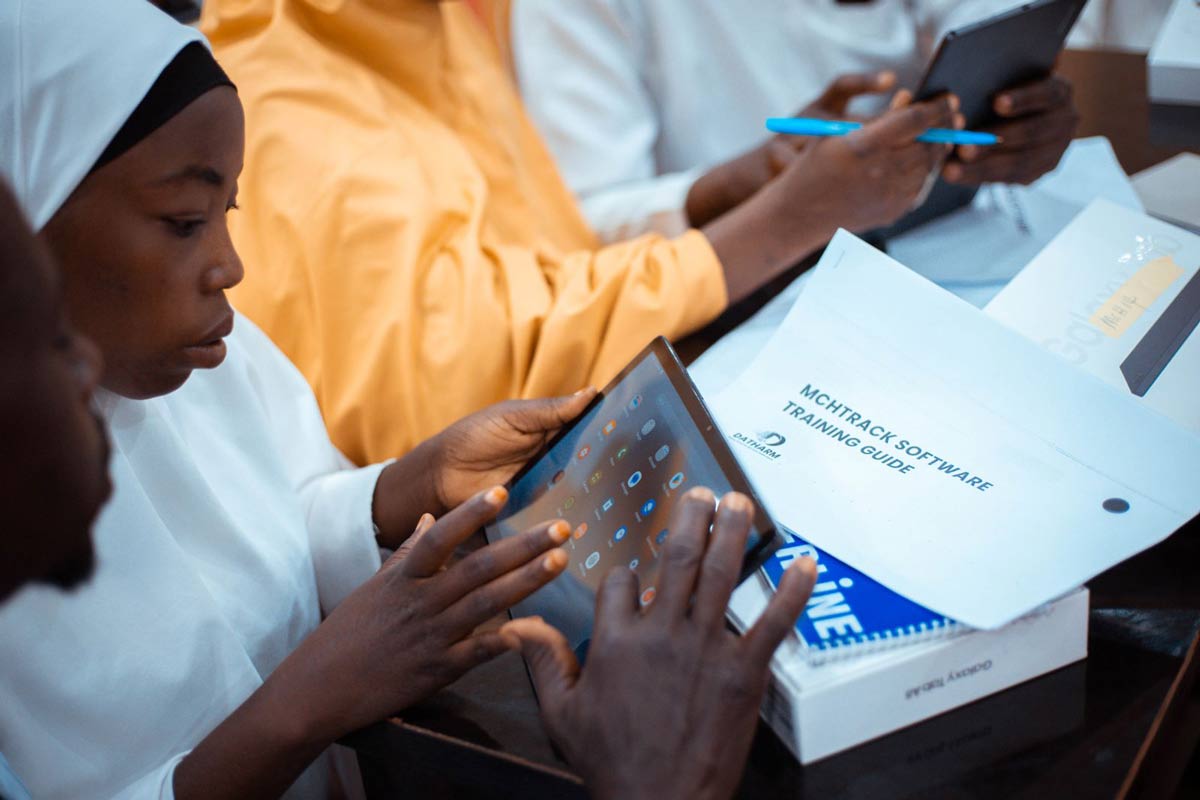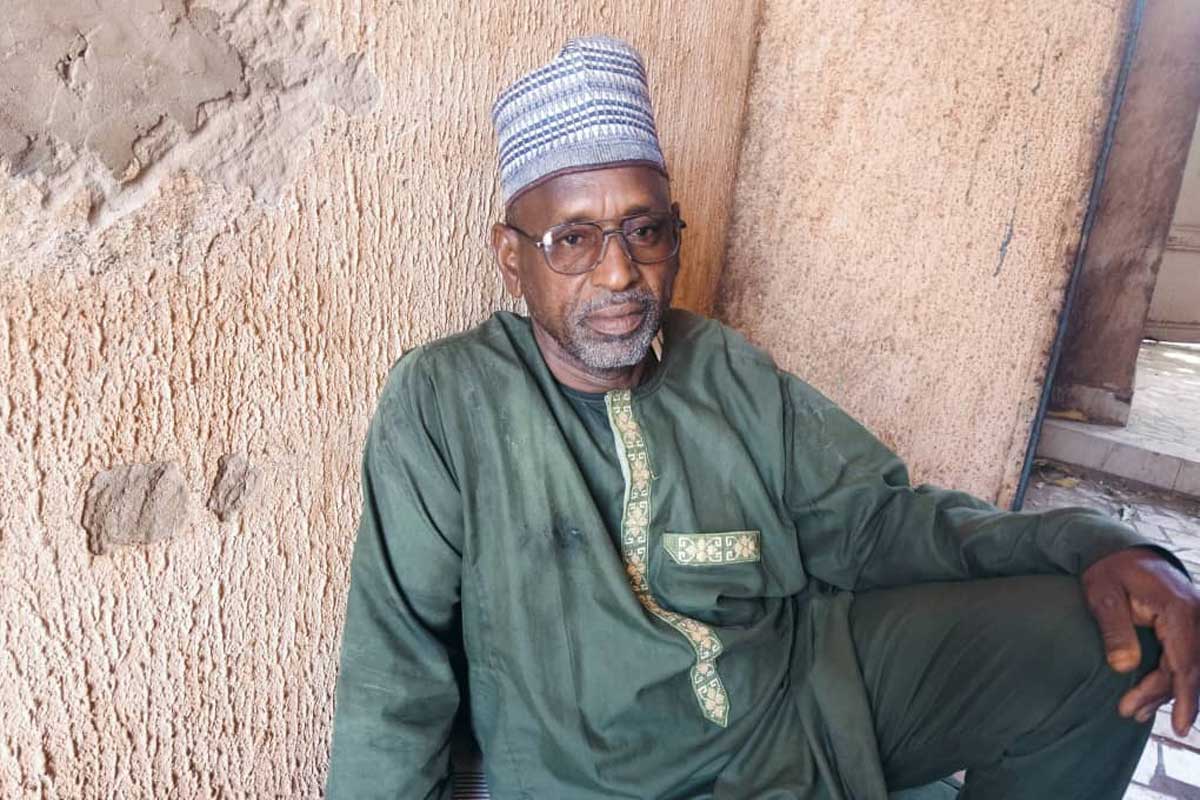Talking vaccines door to door: Community outreach drives up COVID-19 vaccine coverage in Kwara, Nigeria
Kwara State’s health workers are going door to door to spread accurate information about COVID-19 vaccines. The approach is working.
- 17 October 2022
- 4 min read
- by Afeez Bolaji
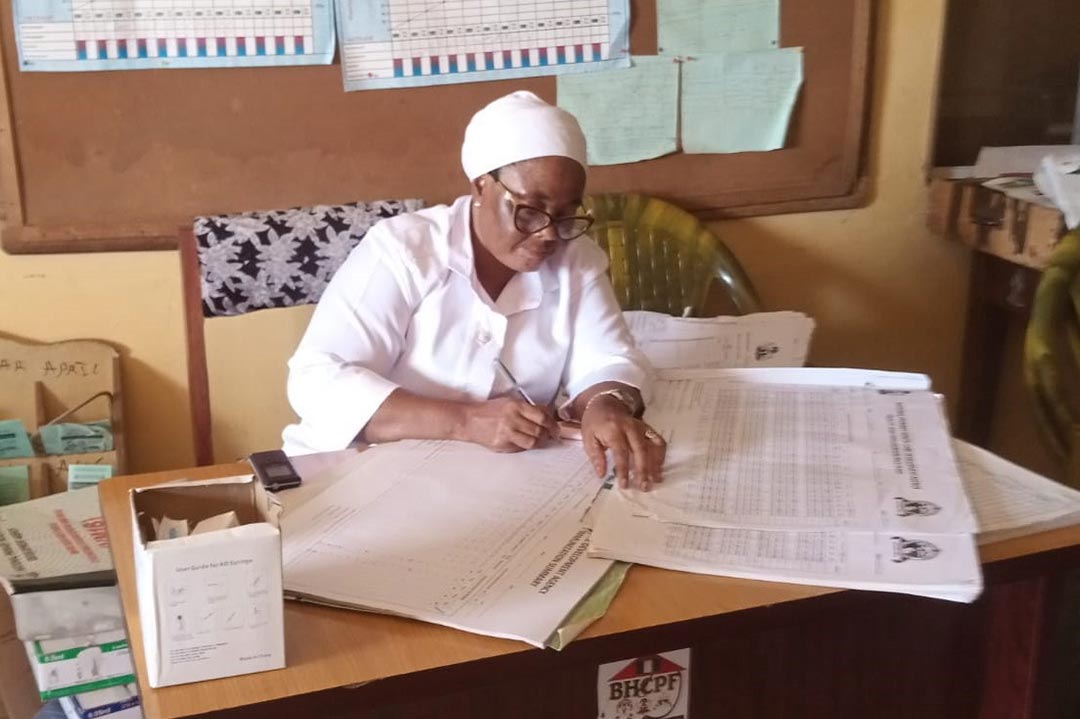
In Kwara State, Nigeria, health workers are fast putting the challenges they've experienced rolling out COVID-19 vaccines behind them. Health officials now visit communities across the 16 local government areas of the state to administer the vaccine and convince locals of the need to receive it.
"What we are doing now is to deploy 592 teams of about 3,000 personnel, of which 119 [teams] are reaching every hard-to-reach area in the state, as well as every eligible person in the state," says the PHCDA Executive Secretary in the state, Dr Nusirat Elelu. "They are moving from house to house, place to place."
“We are witnessing great improvement in vaccination uptake since we started going to communities. Some locals express fears but we always counsel them and they eventually receive it.”
Each team consists of two trained health workers, health recorders and town announcers, Elelu discloses. “As of today, we’re at 38% in terms of our coverage,” she reveals at the flag-off of the Scales 3.0 COVID-19 vaccination campaign in Ilorin, the state capital, mid-August.
“We’ve consistently been in the top six states in the country. What we want to achieve is that 70% of people in Kwara State are fully vaccinated against COVID-19.”
One of the team leads, Fausat Umar, is optimistic that the coverage will climb up considerably in the coming months as more locals now embrace the house-to-house initiative.
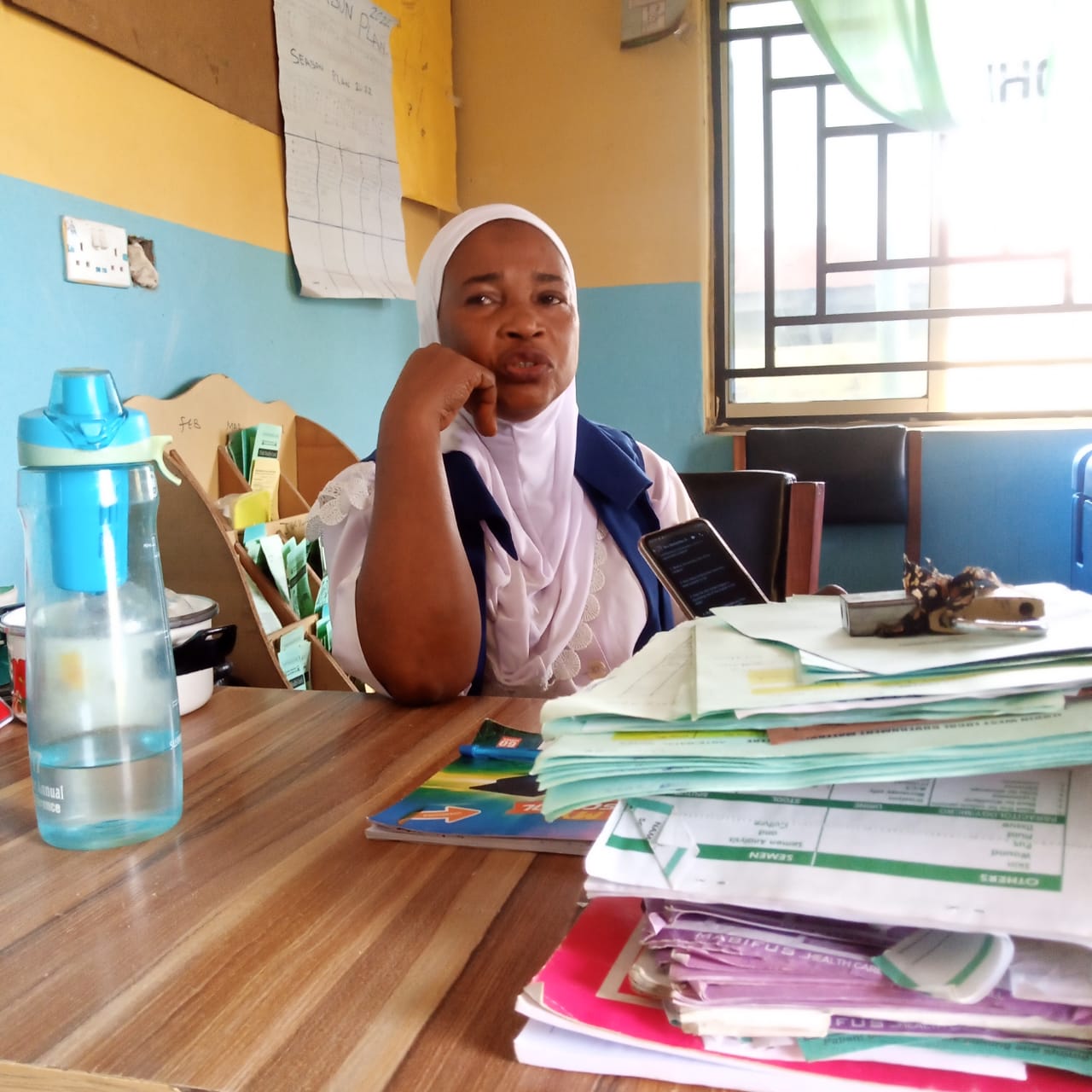
Credit: Afeez Bolaji
“We started the outreach to communities in early August and we have recorded a lot of success within a short time,” says Umar, who works at Idigba Primary Health Centre, Ilorin.
“A lot of people now come out to get vaccinated whenever we visit their communities. My team covered about 12 communities in Ilorin West Local Government Area between August and September and, in each community, we vaccinated 50 to 70 people. Some have completed the doses and have even taken a booster shot. In some communities, they initially rejected the vaccine, citing myths they had been told over time, but after we educated them, they took it. Community leaders also help us to encourage residents to come out. The crowd could be overwhelming sometimes, but we attend to everyone,” she adds.
Umar says that the strategy is melting away people's reluctance to leave their chores and visit hospitals to receive COVID-19 vaccine.
"We are recording higher uptake by visiting communities than waiting for people to come to the hospital. Many people don't want to leave their work," Umar adds.
Have you read?
Aisha Abdulwahab at Adewole-Adeta Primary Health Centre in Ilorin corroborates her colleague's account. She says that people who were earlier afraid to take the jab are increasingly joining forces to encourage others.
"We are witnessing great improvement in vaccination uptake since we started going to communities. Some locals express fears but we always counsel them and they eventually receive it," she says.
"Those who are not around when we go to communities later come to the hospital after knowing their hesitant neighbours have been vaccinated," ;she adds.
“I know many people who did not want to receive the vaccine but changed their mind when the health workers visited our community.”
Alhaji Amada is one of the elders at Adeta community who mobilised several residents for COVID-19 vaccination when an outreach team visited the neighbourhood in September. He also received a booster dose at the time.
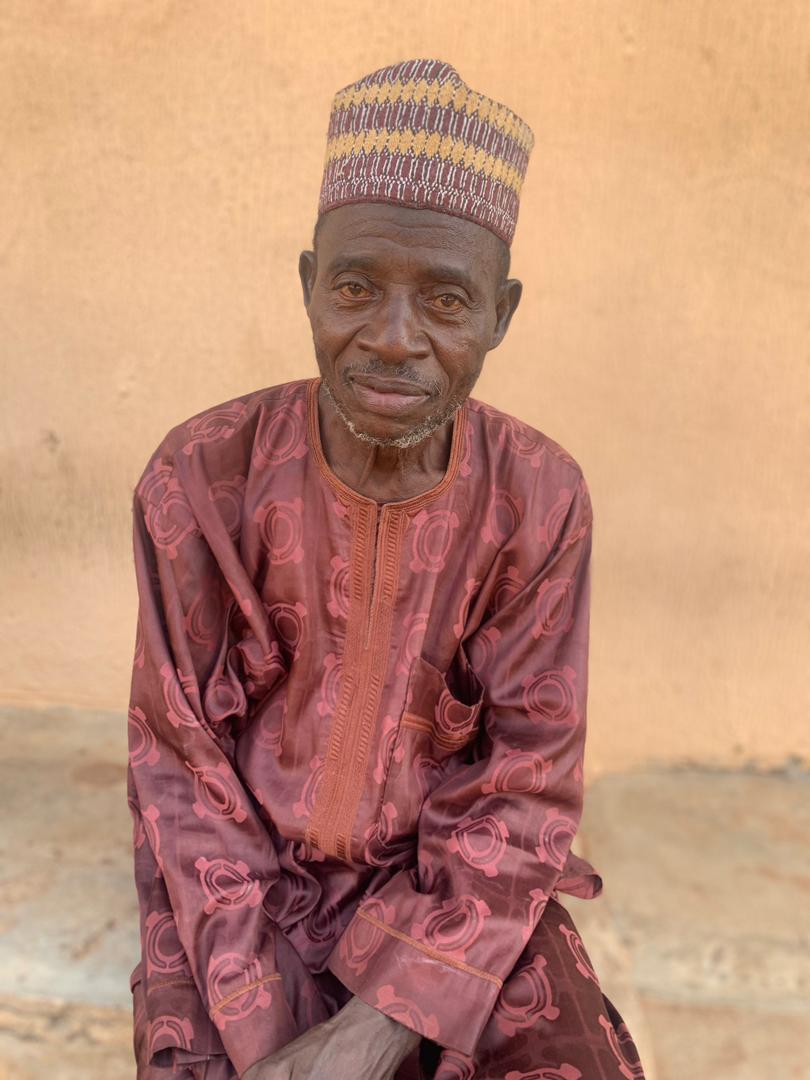
Credit: Afeez Bolaji
“I took the first and second doses at the health centre. Many of us were initially afraid to receive the vaccine until health officials assured us that it is safe. I have also convinced many people to take it,” Amada, who is in his 60s, explains.
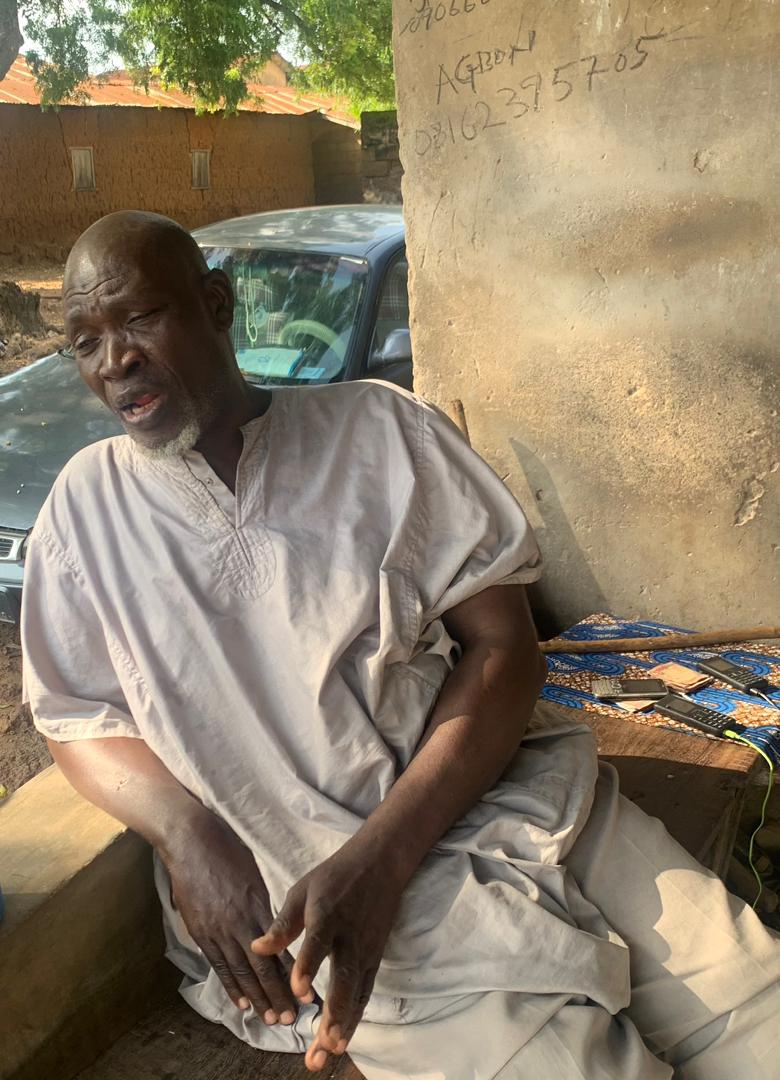
Credit: Afeez Bolaji
Mallam Yahaya Maigida, a community leader at Gaa-Aremu, Ilorin, says, “I have completed the doses. Many people here received the first dose when some health workers came. Quite a number of people have also completed the doses like me. I tell my people to always give them [the team] maximum support whenever they come.”
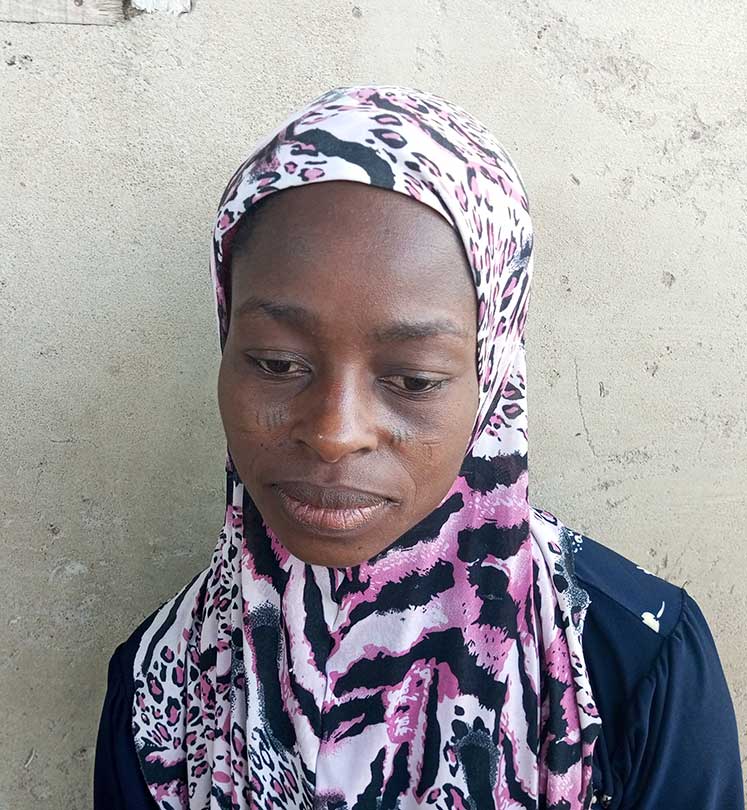
Credit: Afeez Bolaji
Another who has received the full doses is Mariam Sulaiman, who was vaccinated in her community ;in the Kuntu area of the state capital. "I know many people who did not want to receive the vaccine but changed their mind when the health workers visited our community," she says.
According to the Executive Director of the National Primary Health Care Development Agency (NPHCDA), Dr Faisal Shuaib, Nigeria's vaccination coverage increased from about 17 million to 40 million in August for the first dose, while the number of eligible persons fully vaccinated stood at 27,703,573, representing 25%.
He says SCALES 3.0 was introduced as various states' performance analyses showed state-specific bottlenecks that must be addressed in their various contexts for the country to witness improved vaccine uptake.
Health workers in Kwara are already leveraging the strategy by taking COVID-19 vaccine to the locals' doorsteps.
Twitter: @AfeezHanafi
Instagram: Afeez_Hanafi
Facebook: Afeez Hanafi
